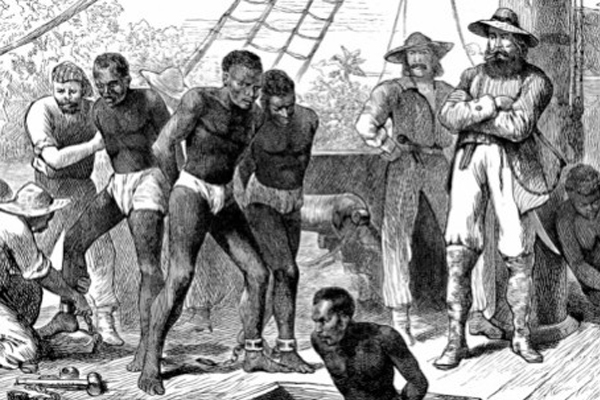YeshaYahu / Isaiah 60:4-5: “…4”Lift up your eyes round about and see; they all gather together, they come to you. Your sons will come from afar, and your daughters will be carried in the arms. 5″Then you will see and be radiant, and your heart will thrill and rejoice; because the abundance of the sea will be turned to you. The wealth of the nations will come to you.”
In today’s justice system, fines or jail time are meted out against perpetrators of crimes against humanity, and compensation awarded to those who have suffered inhumane and cruel treatment. There are some who would wish to erase the past and ignore the lingering trauma and socio-economic inequities that are the sorry legacy of the trans-Atlantic slave trade, but Caribbean leaders are not backing down from their responsibility to their people – to seek justice for the descendants of those who were inhumanely traded and exploited for free labor while the world elite waxed rich.
A Caribbean Reparatory Justice Programme (CRJP) has been accepted by the CARICOM Heads of Government as a basis for discussions on reparations from slavery and native genocide, chairman of the Caribbean Community (CARICOM), Dr. Ralph Gonsalves, announced at a press conference following the Inter-Sessional Meeting of the Conference of the CARICOM Heads of Government, held recently in St. Vincent and the Grenadines.
Gonsalves said that the Caribbean Reparatory Justice Programme—a strategic and operational 10-point plan which was prepared by the Regional Reparations Committee, entails a request for a full apology from the governments of Europe involved in the transatlantic slave trade.
The plan also calls for the establishment of Caribbean cultural institutions, an education program, which will address matters such as literacy and debt cancellation, two of the recommendations included in the CRJP.
The CARICOM release notes that the action plan would be further discussed by the Prime Ministerial Subcommittee on Reparations, chaired by Barbados Prime Minister, Freundel Stuart.
Caribbean leaders endorse the call for a conference between Caribbean and European leaders, which would provide an opportunity for in-depth discussions on reparatory justice.
A lawsuit could claim hundreds of billions, most estimates say.
The Guardian of the UK reported, in advance of the St. Vincent meeting, that a Foreign Office spokesperson has said that, “We do not see reparations as the answer. Instead, we should concentrate on identifying ways forward, with a focus on the shared global challenges that face our countries in the 21st century. We regret and condemn the iniquities of the historic slave trade, but these shameful activities belong to the past. Governments today cannot take responsibility for what happened over 200 years ago.”
The UK newspaper said that the reparations claim is being organized by the London law firm Leigh Day, in the context of the UN Convention on the Elimination of Racial Discrimination (CERD). It added that if the parties fail to reach an agreement, it will mean that the matter will be referred to the International Court of Justice in The Hague, Netherlands.
The 10-point action plan:
(1) A full formal apology from these governments as opposed to “statements of regrets” issued by some;
(2) Repatriation, since over 10 million Blacks were stolen from their homes and forcefully transported to the Caribbean as the enslaved chattel and property of Europeans and as such, the descendants of these stolen people have a legal right to return to their homeland;
(3) An Indigenous Peoples Development Programme to rehabilitate survivors;
(4) Cultural institutions through which the stories of victims and their descendants can be told;
(5) Attention to be paid to the “Public Health Crisis” in the Caribbean, which sees the region having the highest incidence of chronic diseases, which stem from the nutritional experience, emotional brutality and overall stress profiles associated with slavery, genocide and apartheid.
(6) Illiteracy eradication as the British in particular left the Black and Indigenous communities in a general state of illiteracy;
(7) An African knowledge programme to teach people of African descent about their roots;
(8) Psychological rehabilitation for healing and repair of African descendant populations;
(9) Technology transfer for greater access to the world’s science and technology culture; and
(10) Debt cancellation to address the “fiscal entrapment” that faces Caribbean governments that emerged from slavery and colonialism.

